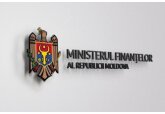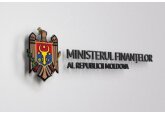
Fiscal policy of Moldova in recent years was generally expansionary and supported the growth of the economy - the World Bank.
This is stated in a new World Bank study "Public Finance Review. Fiscal Policy Focused on Sustainability and Economic Growth," which was presented Tuesday at the Economic Press Club. The paper said that the cyclically adjusted primary balance is an important indicator for assessing the structural orientation of fiscal policy by differentiating between cyclical changes. Fiscal impulses were often positive when the economy was already in recovery and negative when the economy was in recession, with some but notable exceptions (2007, 2016, 2017, and 2020). This points to pro-cyclical behavior of fiscal policy. The WB experts say that automatic stabilizers by their nature should respond to the business cycle, revenues should decrease and some expenditures should increase in times of crisis, which is mostly observed in Moldova. In Moldova, the fiscal impulse, which measures discretionary government action, has prevailed over the automatic stabilizers of the fiscal system. The WB analysts point out that the persistence of procyclicality, albeit to a relatively lesser extent than in comparable countries, has partially prevented an increase in fiscal sustainability. The correlation between cyclical components of public expenditures and GDP growth is almost twice less than the average for comparable countries (0.3% versus 0.6%). Moldova's structural characteristics typical of a small economy, including a modest production base, overdependence on imports, and vulnerability to exogenous shocks, require a much stronger countercyclical orientation and increased fiscal sustainability to mitigate the socioeconomic impact of various crises when they occur. As noted, Moldova has had a major natural disaster every 3 years on average since 2000, with the droughts of 2020 and 2022 being just the latest in a long and increasingly frequent series of weather events exacerbated by climate change. The energy crisis and Russia's invasion of Ukraine have highlighted Moldova's instability and non-diversification of energy sources through single-source and single-supplier imports. The WB study points out that a positive feature of Moldova's fiscal situation is the low level of fiscal inflexibility, although fiscal rigidity has recently increased significantly. The low level of fiscal inflexibility facilitates budget reallocation in the short run in case of new priorities and/or materialization of shocks. In the case of Moldova, budgetary rigidity increases significantly when taking into account the budgets of social and health insurance funds, as well as transfers to local administrations, which are the main source of funding at the local level. Compared to countries similar in structure and aspirations, Moldova's expenditures are more flexible, with rigid elements - salaries, interest payments and social transfers (mainly related to social insurance, but also including social assistance programs) - which account for about 60% of total public administration expenditures. Fiscal rigidity increases in countries with higher social and wage expenditures, so recent decisions to raise the minimum wage and pensions in 2022 have increased fiscal rigidity in Moldova, but still remain low compared to other countries. As the WB experts point out, when we add to the analysis and income distribution, fiscal flexibility drops to 12% of total spending. If we also take into account social benefits, the health fund, and transfers to local governments, hard spending reaches nearly 74% of total spending. If we also take into account expenditures financed by allocated revenues, the estimated fiscal rigidity increases to 84.5%. This is largely due to capital expenditures, which are financed from earmarked sources. In addition, some budget items cannot be changed in the short term. These medium-term constraints related to subsidies to state enterprises, the Road Fund and the private sector account for another 3.4% of total expenditures, which further reduces the ability to redistribute funds in response to shocks and the resulting budget space is reduced to 12%. The WB experts point out that, at the same time, inter-budget transfers, which account for about 20% of total spending, are an important category that affects not only overall budget rigidity, but also fiscal sustainability. Local expenditures affect global expenditures and are not supported by adequate local revenues. Local governments in Moldova spend 8.1% of GDP, equivalent to a quarter of total expenditures, which is much higher than in the case of similarly structured countries, but at the level of the average for the target countries. The vertical fiscal imbalance, the share of local expenditures financed by transfers from the central administration, is particularly high at 75%, given the high dependence of local administrations on these transfers. Moldova's vertical fiscal imbalance is almost twice as high as the average for all comparable countries, and only Estonia and Lithuania have a higher figure. As the WB experts emphasize, this is especially important in terms of efficiency, given that Moldova's current administrative and territorial structure is suboptimal compared to the size of the country and its population. With the exception of Chisinau and Gaugazia ATU, most municipal administrations are highly dependent on transfers from the central government with limited capacity to collect compared to their needs. This contributes to a horizontal fiscal imbalance, since most of the transfers go to the capital Chisinau, which accounts for about 60% of Moldova's GDP and has a higher revenue collection capacity. // 13.06.2023 – InfoMarket







